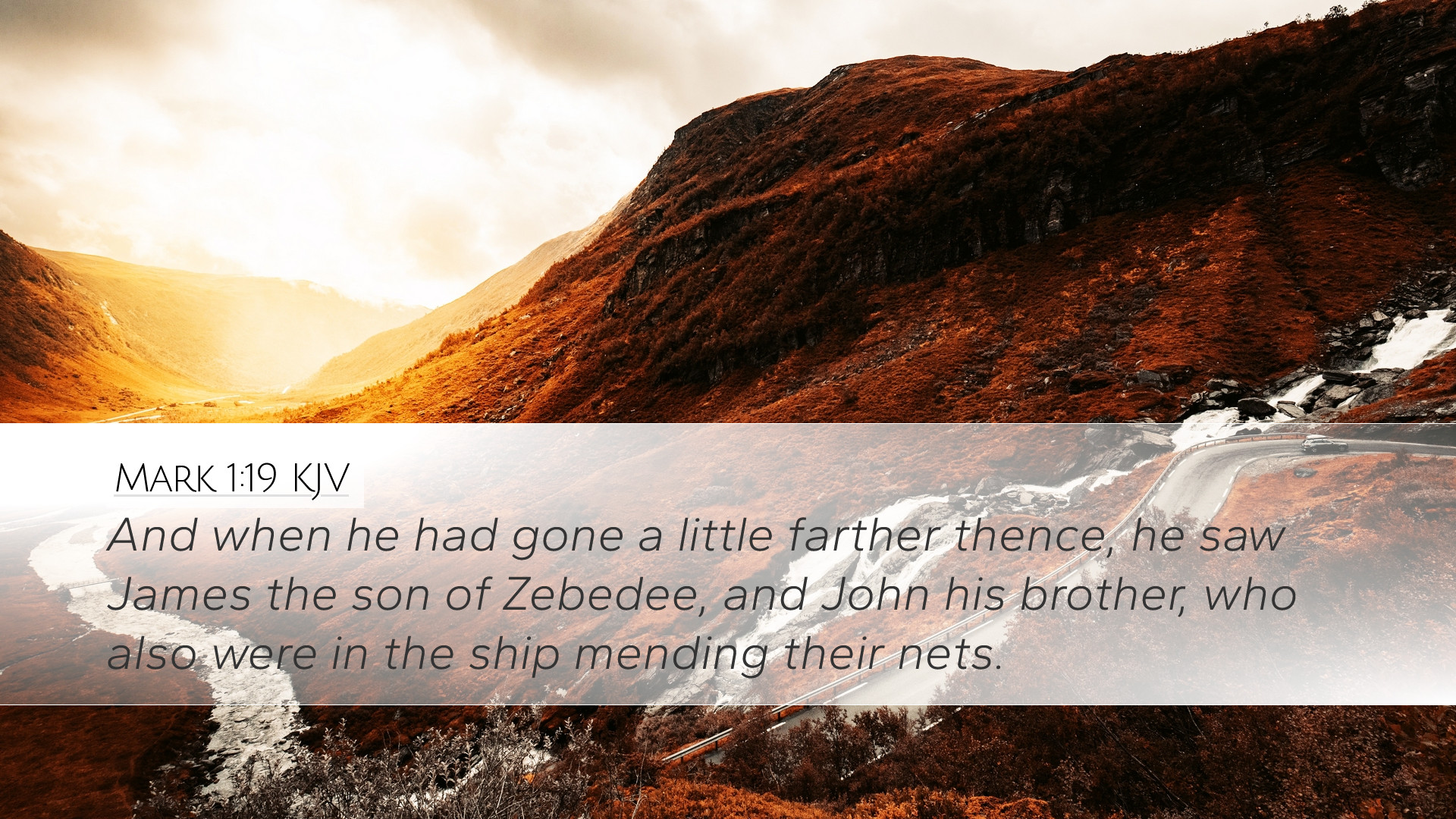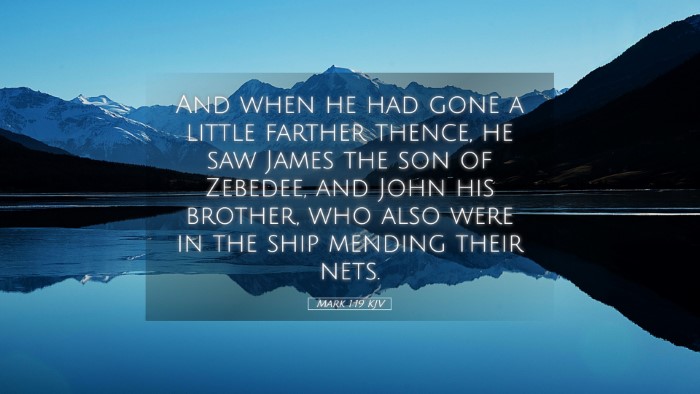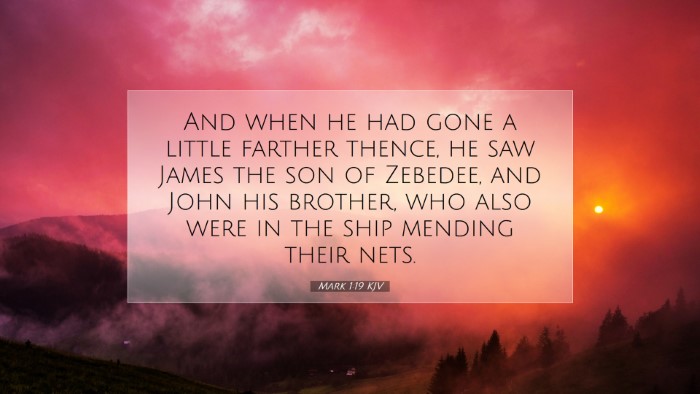Commentary on Mark 1:19
Mark 1:19 states: "When He had gone a little farther, He saw James the son of Zebedee, and John his brother, who also were in the boat mending their nets." This simple verse conveys a profound theological message about the call to discipleship, the nature of Jesus’ ministry, and the characteristics of those whom He chooses for service.
Contextual Overview
The Gospel of Mark opens with a dynamic portrayal of Jesus’ ministry, immediately setting the stage for His call of the disciples. This passage is part of a larger narrative that shows how Jesus began calling His first disciples, transitioning from His baptism and temptation to the formulation of a group that would follow Him closely.
Commentary Insights
1. The Call of the Disciples
Mark 1:19 highlights the intentionality of Jesus in choosing His disciples. Matthew Henry notes that the choice of James and John was significant, as they later became part of His inner circle, displaying a closeness that would lead to deep spiritual insights and experiences.
In this context, Albert Barnes emphasizes that the disciples were called while engaged in their daily work, which illustrates that Jesus calls people amidst their ordinary lives. This reflects a principle of God's calling, suggesting that no vocation is too mundane for divine purpose.
2. Mending Nets: A Symbol of Readiness
Moreover, the phrase “mending their nets” carries significant meaning. According to Adam Clarke, mending represents preparation and readiness for ministry. Just as fishermen must prepare their equipment, so too must disciples be ready to respond to Jesus’ call. There's a symbolic connection between the labor of the fishermen and the spiritual work that would lie ahead for them.
This act of mending is a precursor to a more significant work; it shows that Jesus calls individuals who are diligent in their current tasks and prepares them for their future roles in the Kingdom of God.
3. The Nature of Discipleship
The choice of brothers, James and John, signifies community within discipleship. As noted by Matthew Henry, Jesus often called people in relational contexts—emphasizing that the journey of following Him is not meant to be solitary. This acts as an early indication that the early Christian community is built on relationships, mirroring the unity in the Trinity.
Theological Implications
1. Divine Authority and Human Response
This verse also illustrates the authority of Jesus to call individuals to Himself. Barnes points out that this authority was evidenced by the immediacy with which the disciples responded to His call. The fact that they were mending their nets indicates they were prepared and available for His invitation, presenting a model of readiness that contemporary believers are encouraged to emulate.
2. Theological Reflection on Work and Worship
Jesus’ calling of fishermen at work reinforces the idea that secular work can be sacred. Adam Clarke writes about the sacred nature of all vocations, stressing that God's call can often intersect with daily responsibilities. This also calls into question dichotomies often made between sacred and secular tasks, encouraging believers to see their work as a calling from God.
Practical Applications for Today
For pastors, students, and theologians, Mark 1:19 serves as a powerful reminder of the pervasive nature of God's call. Here are several applications:
- Readiness: Like James and John, we must be mending our nets—preparing ourselves for God’s calling by cultivating skills, knowledge, and spiritual disciplines.
- Community: Recognizing the relational aspect of discipleship, we are reminded to engage in community life, supporting one another in our journeys of faith.
- Integration of Faith and Work: Seek to view every task as integral to God’s mission, embracing your vocation as a platform for ministry.
Conclusion
Mark 1:19 is rich with meaning, illustrating the themes of divine calling, preparation, and the everyday nature of discipleship. By studying this passage, one is reminded of the holiness of ordinary tasks and the significance of communal relationships in our spiritual journeys. The insights from public domain commentaries collectively underscore the call to ready ourselves for God’s work in both our personal and communal lives.


